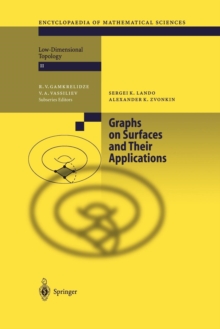
Probability Theory III : Stochastic Calculus Paperback / softback
Edited by Yurij V. Prokhorov, Albert N. Shiryaev
Part of the Encyclopaedia of Mathematical Sciences series
Paperback / softback
Description
Preface In the axioms of probability theory proposed by Kolmogorov the basic "probabilistic" object is the concept of a probability model or probability space.
This is a triple (n, F, P), where n is the space of elementary events or outcomes, F is a a-algebra of subsets of n announced by the events and P is a probability measure or a probability on the measure space (n, F).
This generally accepted system of axioms of probability theory proved to be so successful that, apart from its simplicity, it enabled one to embrace the classical branches of probability theory and, at the same time, it paved the way for the development of new chapters in it, in particular, the theory of random (or stochastic) processes.
In the theory of random processes, various classes of processes have been studied in depth.
Theories of processes with independent increments, Markov processes, stationary processes, among others, have been constructed.
In the formation and development of the theory of random processes, a significant event was the realization that the construction of a "general theory of ran dom processes" requires the introduction of a flow of a-algebras (a filtration) F = (Ftk::o supplementing the triple (n, F, P), where F is interpreted as t the collection of events from F observable up to time t.
Information
-
Out of stock
- Format:Paperback / softback
- Pages:256 pages, VI, 256 p.
- Publisher:Springer-Verlag Berlin and Heidelberg GmbH & Co. K
- Publication Date:01/12/2010
- Category:
- ISBN:9783642081224
Information
-
Out of stock
- Format:Paperback / softback
- Pages:256 pages, VI, 256 p.
- Publisher:Springer-Verlag Berlin and Heidelberg GmbH & Co. K
- Publication Date:01/12/2010
- Category:
- ISBN:9783642081224










